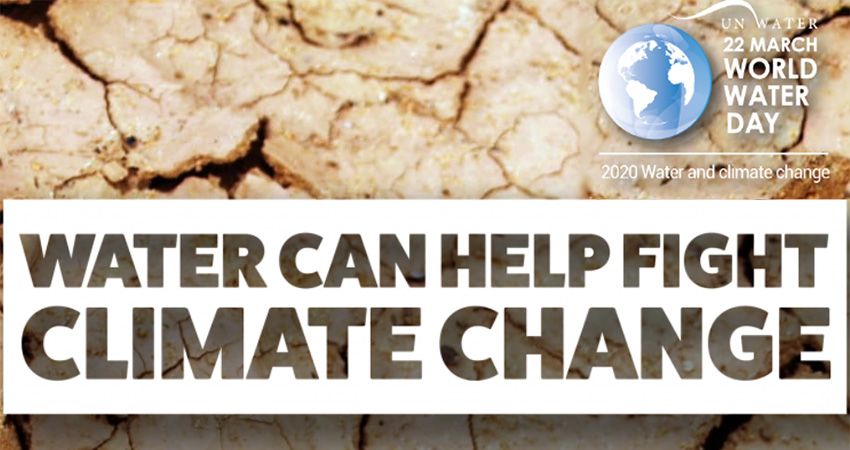World Water Day links water and climate change

-
 Editorial Team
Editorial Team
Share article:
The theme for World Water Day 2020 is ‘Water and Climate Change – Accelerating Action’. It has a special focus on innovation, science and actions needed to tackle one of the greatest threats to our planet. World Water Day is organized annually the 22th of March by UN Water. During this day globally many events are taking place to create awareness of the theme that is always related to water.
‘The global climate crisis is inextricably linked to water. Climate change increases variability in the water cycle, inducing extreme weather events, reducing the predictability of water availability, affecting water quality and threatening sustainable development and biodiversity worldwide’, states UN Water in a policy brief.
Growing demand
According to the UN-organisation growing demand for water increases the need for energy-intensive water pumping, transportation, and treatment, and has contributed to the degradation of critical water-dependent carbon sinks such as peatlands. And, some climate change mitigation measures, such as the expanded use of biofuels, can further exacerbate water scarcity.
Tough decisions are needed
National and regional climate policy and planning must take an integrated approach to climate change and water management. Increased water stress and meeting future demands will require increasingly tough decisions about how to allocate water resources between competing water uses, including for climate change mitigation and adaptation. ‘If we are to create a sustainable future, business as usual is no longer an option and water management needs to be scrutinized through a climate resilience lens.’
More investment
UN Water declares we need more investment in improved hydrological data, institutions and governance, education and capacity development, risk assessment and knowledge sharing. Policies need to ensure the representation, participation, behavioral change and accountability of all stakeholders, including the private sector and civil society. Adaptation plans need to incorporate targeted strategies that assist lower-income populations – those who are disproportionately affected by climate change impacts – to navigate new conditions.
More information: World Water Day

















